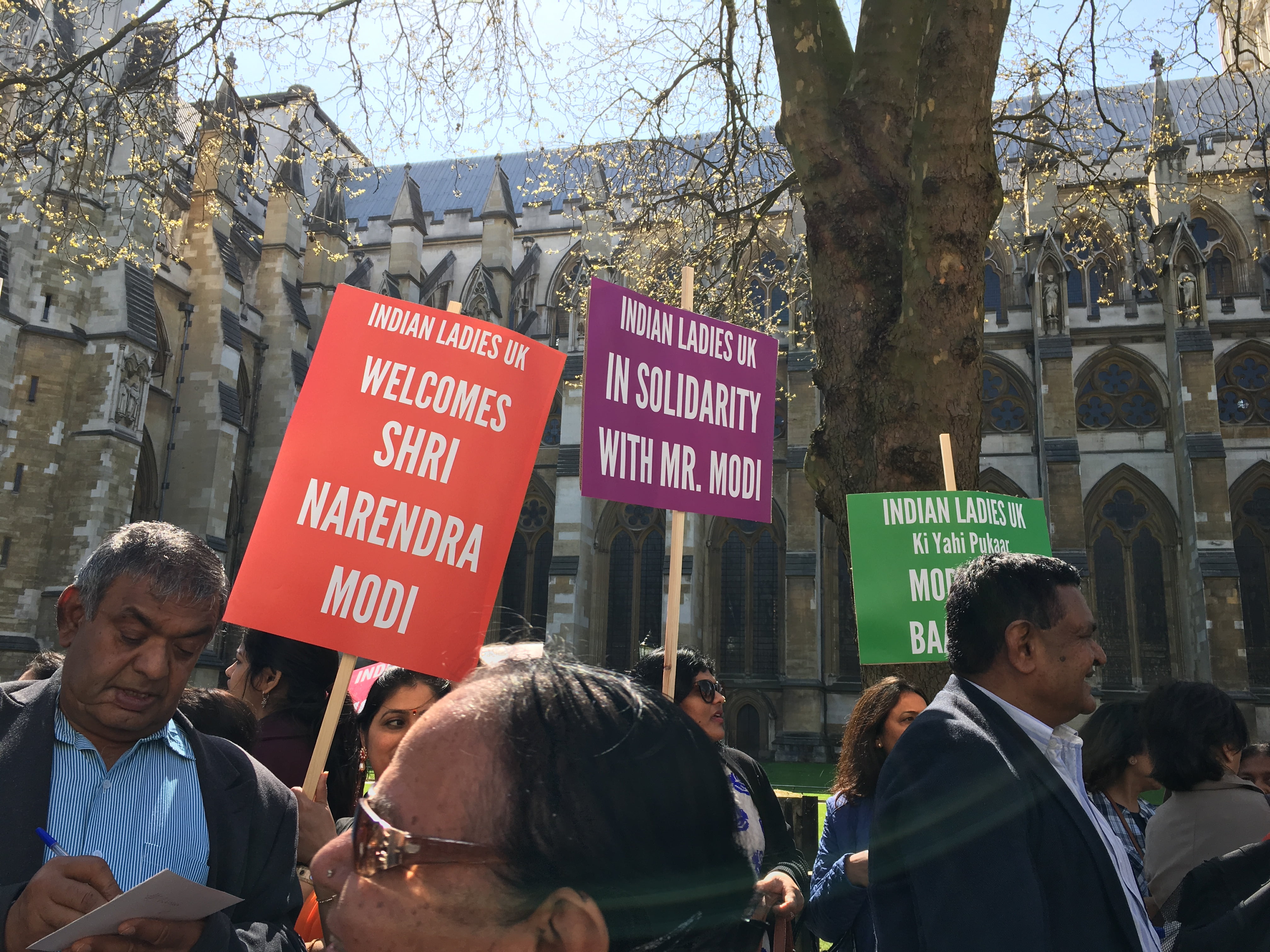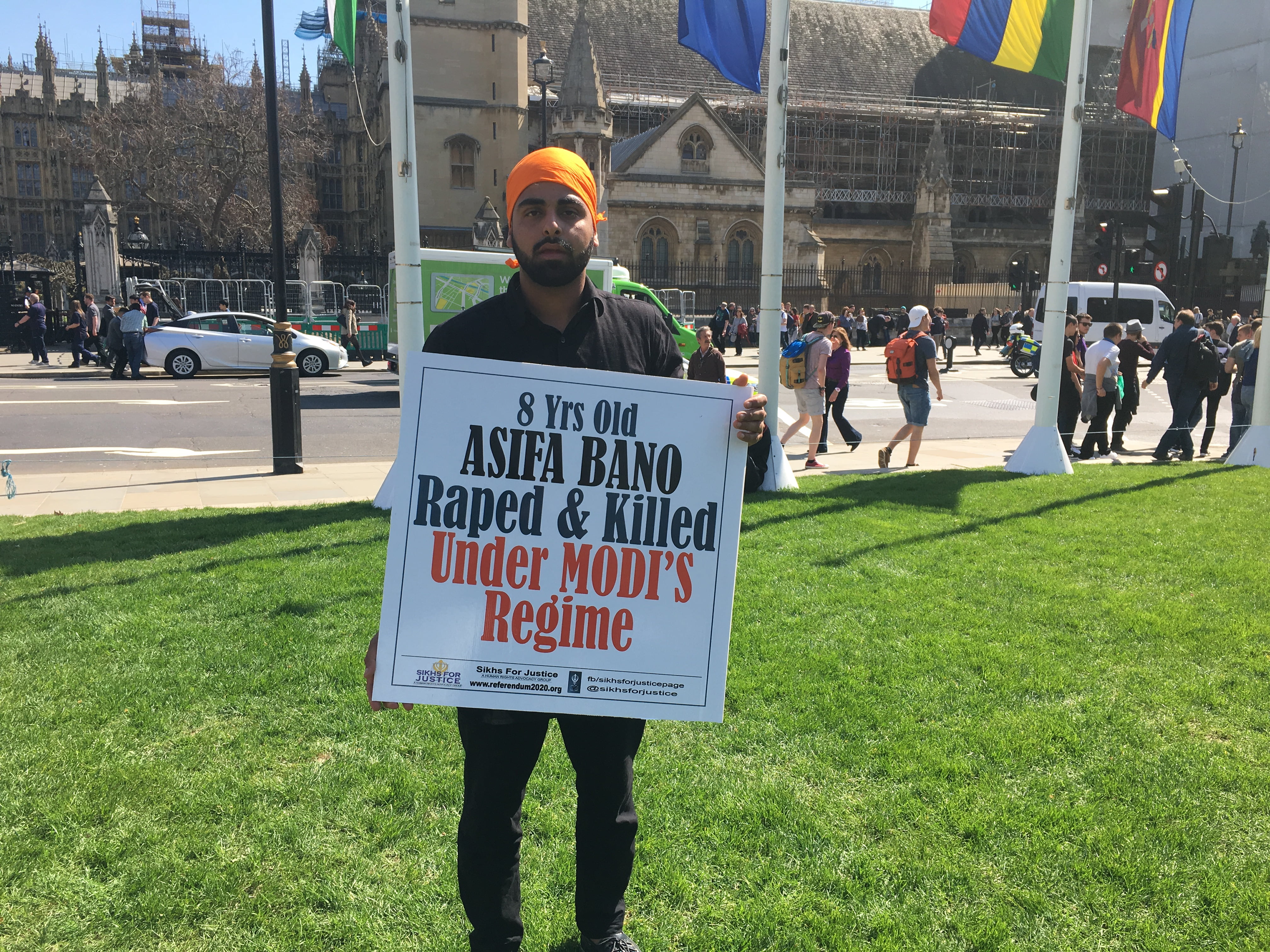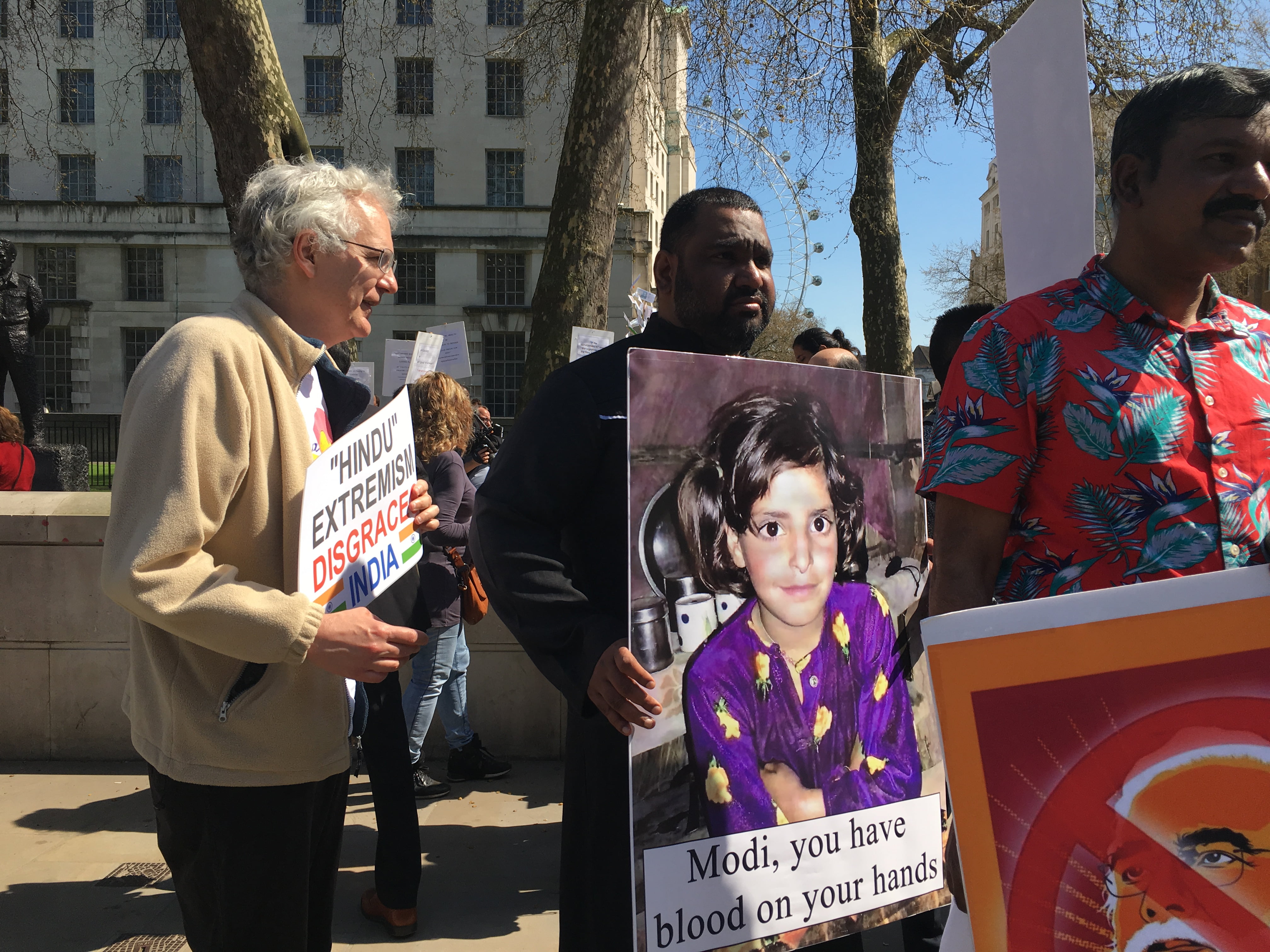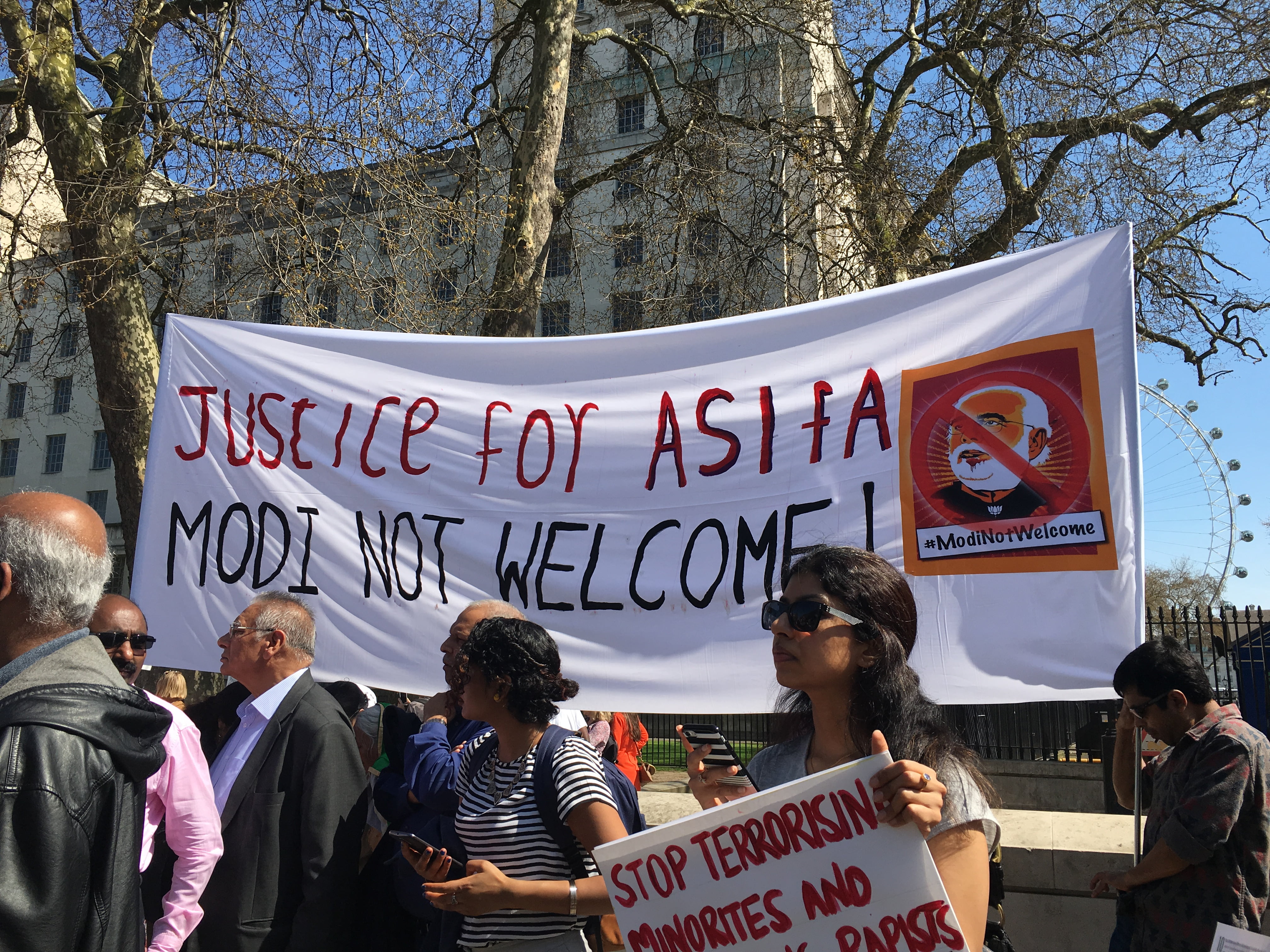You could not have missed that Narendra Modi was in Central London, for hundreds of Indian men and women turned out to either demonstrate in support of or remonstrate against him. Modi was attending the Commonwealth Heads Summit.
In all my years of living in London, I have never seen quite so many Indians crowded together in one area within London. Such is the power of Modi but it has attracted much controversy in the British press.
I went along to observe and report for Feminism in India. It was an experience that shook me and left me wondering whether there is any such thing as ‘Indian Values’ or have these, if they ever existed at all, been transmuted into anti-women ‘cultural nationalism’.
I felt as if I had walked into a parallel universe. Both pro-Modi and anti-Modi groups were in attendance but situated a little distance away from each other. I happened upon the pro-Modi group first but it took me a few seconds to recognise this. The reason for my initial bewilderment was because this group consisted predominantly of women. They were full of defiant swagger and were chanting pro-Modi phrases.

Where was the recognition of the hostile environment that has been created by Modi’s politics which does not take child sexual abuse and rape seriously? Where were the banners calling for Justice for Asifa?
Instead, there was merrymaking and music and colourful clothing that one could have been forgiven for wondering whether a wedding was taking place. Quite ironic considering that there are funerals taking place all over India for survivors/victims of rape and child sexual abuse.
The anti-Modi demonstration was, by contrast, much smaller and serious. They held banners with Asifa’s photograph and against sexual violence. There was no music and their mood was subdued. Concern over the level of rapes in India has been reflected in the UK press.

One Indian woman studying in London told me that she felt safe to an extent in India because of her privilege. She was able to travel in a safe manner because she had money, she explained, and this shielded her from the dangers of sexual harassment. However, she was there, she told me, demonstrating on behalf of all Indian women. She was a feminist she said.
Also Read: We Need To Stop Viewing Women As The Flag-Bearers Of Nationalism
If the numbers of women who turned out in support of Modi in London are anything to go by, then cultural nationalism is the enemy of Indian feminism. I don’t live in India and can only comment on what I saw in London.
I spent all day unravelling my long-held belief that Indian values equalled progressive values. Perhaps my beliefs were far too subjective and devoid of evidence. There was so much to unpick.
Little girls have been raped, tortured and murdered. Their relatives denied justice. The father of one rape survivor was killed while in police custody. Having endured colonialism, should South Asia not have a higher sense of justice?
Modi’s silence has caused controversy worldwide.
After a day of contemplation, I began to see quite clearly the causal connection between long-held Indian prejudices and the current anti-female dogma. The female value was demeaned right from decades ago when female babies were aborted without hesitation. I remember ‘aunties’ talking about their selective abortions quite openly in my childhood.

Then there was the stigmatisation of women for not dressing in the right way. This fanned out to the use of ‘class’ as a dangerous cleavage between ‘deserving’ and ‘undeserving’ women. When girls from well-off families were raped, they were referred to as ‘low class’. ‘Undeserving women’ were blamed for sexual violence, sometimes even for domestic violence. People turned a blind eye to so-called ‘cultural practices’ of cruelty to their daughters-in-law.
Those who choose to ignore the plethora of wrongdoings are foolish and naïve. In Nazi Germany, there was a pastor called Martin Niemoller who railed against the German intellectuals for not speaking up against Hitler. Niemoller’s ever famous phrase, “ …then they came for me and there was no one left to speak for me” is part of a wider speech given about how society did not speak up for various persecuted groups till, finally, the silent were persecuted themselves.
Those who tolerate a lack of justice take delight in the fact that they see themselves as belonging to some special cultural group which, they think, affords them a high level of protection. Their anti-female hatred is subsumed within cultural nationalism. What they don’t realise is that any form of nationalism is an abstract concept. It is not material. In practical terms, what this means is that NO woman is safe while hatred against women prevails.
Also Read: Women’s Sexuality In The Indian Nationalist Discourse
About the author(s)
Jane Chelliah is of Tamil descent and lives in London. She blogs about race, feminist mothering and cultural issues at http://ambitiousmamas.blogspot.co.uk/.




